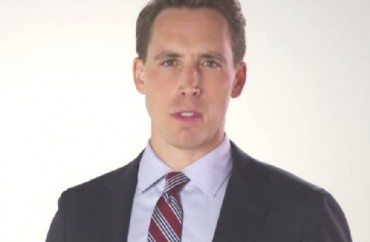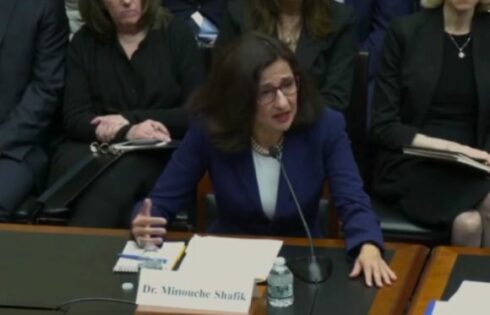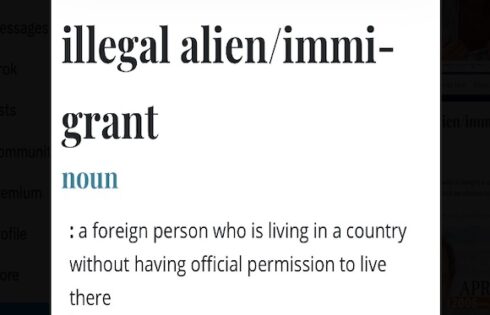
Republicans request university emails pertaining to scholar’s bid
The candidacy of a University of Missouri law professor running for Missouri’s Attorney General post has a small group of Republican lawmakers in the Midwestern state probing whether the university is giving the prof a “sweetheart” deal by allowing him to run for office.
On paper, Josh Hawley looks like a perfect candidate to earn the 2016 Republican nominee for Attorney General. A constitutional law professor, Hawley has previously clerked for U.S. Supreme Court Chief Justice John Roberts, and was co-counsel for the Hobby Lobby contraception case that prevailed in the Supreme Court last year.
Yet, Hawley’s candidacy is drawing scrutiny from fellow Missouri Republicans, who want to know whether the university might have helped ease the way for Hawley’s candidacy. Hawley’s primary opponent, state senator Kurt Schaefer, recently told the Columbia Daily Tribune that he thinks the University of Missouri is “giving [Hawley] a sweetheart deal to run” for office.
And the Missouri Times reports that “some have expressed concerns that Hawley, who recently became eligible for tenure, would be running for public office while collecting benefits related to tenure from the university.”
Two fellow Missouri Republicans are set on figuring out whether Schaefer’s claim is true.
In May, former state Rep. Kevin Elmer filed an open records request for all emails sent or received by Hawley. In addition, the request calls for any emails that include Hawley’s name or “Attorney General” that were sent or received by Mizzou law dean Gary Myers, UM System President Tim Wolfe, and Mizzou Chancellor R. Bowen Loftin.
“We are supposed to live in this state and society where our government should be transparent, so I decided I would shoot off these questions,” Elmer told the Daily Tribune of his requests.
More recently, Missouri Sen. Rob Schaaf also filed an open records request. While Schaaf’s request doesn’t specifically mention Hawley, he implies it was brought on by the recent scrutiny over his candidacy.
“In following recent news stories concerning University of Missouri employees and their applicable employee policies relating to campaigning for public office has me interested in obtaining the following information for a better understanding of my initial concerns,” Schaaf wrote in his July 21 request.
Schaaf has asked the university to provide him a list of employees “over the last 10 years who were told they must quit or resign their position if they were to run for public office.”
Both requests are still being processed by the university. What’s unclear in the requests is how the university might have eased the way for Hawley’s campaign. Hawley, who filed his candidacy on July 23, is currently on unpaid leave because of his campaign, which follows Mizzou protocol for employees who run for public office.
The UM system requires its employees to “resign or request a leave of absence by the date of filing in the primary.” Though, primary filing for next year’s elections won’t begin until Feb. 23, 2016.
That late date, and the early nature of today’s campaigns, might be why lawmakers have issues with the policy. While Hawley didn’t launch his candidacy until late July, it was reported in April that he was not listed to teach classes for the 2015-16 academic year.
Of the university system’s policy, Rep. Steve Cookson, chairman of the legislature’s Higher Education Committee, told The Missouri Times in May that it “does not pass the smell test.”
“This will be scrutinized and investigated further in the coming legislative session if not before,” the Republican said.
The UM system has already taken steps to revise the policy. Just a day after Hawley filed his candidacy, the UM board of curators revised the policy. The updated policy, effective April 2016, requires employees to resign or to seek leave by the “date of registration of an exploratory committee” or “the date of registration of a candidate committee.”
The changes were made to reflect “the modern reality that significant campaign activities begin before the filing deadline for the primary election,” according to UM documents.
“In the current environment, campaigns begin much earlier, and filing as a primary election candidate may occur relatively late in the campaign process,” the documents read. “Candidates for full-time office routinely engage in extensive fundraising, outreach, and other campaign activities well before the primary filing deadline.”
The College Fix could not reach Rep. Cookson or former Rep. Elmer for comment on the updated policy.
Like The College Fix on Facebook / Follow us on Twitter
IMAGE: screenshot





Please join the conversation about our stories on Facebook, Twitter, Instagram, Reddit, MeWe, Rumble, Gab, Minds and Gettr.